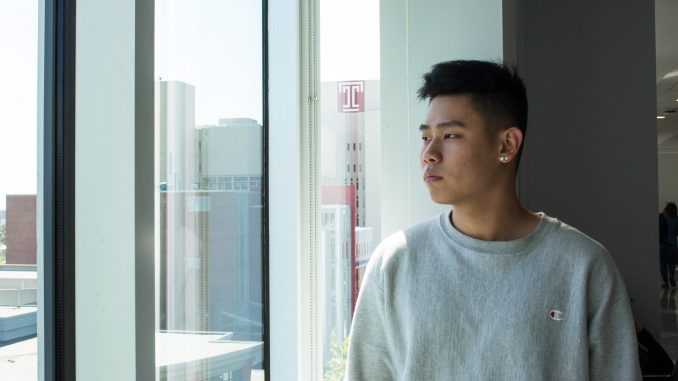
Kyungmin Cho immigrated from South Korea to Palisades, New Jersey, when he was 8 years old. He didn’t learn of his undocumented status until he was applying to college.
“I was shocked because I lived in this country for such a long time, and I just expected myself to be a citizen,” said Cho, a sophomore accounting major. “It affected my whole outlook on the college application process, because I wasn’t a citizen, so I couldn’t apply for financial aid.”
In March, Cho’s legal immigrant status under the Deferred Action for Childhood Arrivals program may expire, and he could face potential deportation as an undocumented immigrant, along with 800,000 other DACA beneficiaries. These young people are called “Dreamers,” and they were illegally brought to the United States as children.
Until Congress institutes another plan to protect Dreamers, DACA is the only program that grants them legal status.
In 2012, former President Barack Obama issued an executive order to implement DACA, which protected child immigrants who were brought to the U.S. illegally, in an attempt to extend the policies of the deferred 2001 DREAM Act. The DREAM Act provided legal status to immigrants who joined the Army or attended college in the U.S.
In a statement released on Saturday, the Department of Homeland Security announced that until further notice, the DACA program will operate “on the terms in place” before it was rescinded in September 2017. On Sunday, President Donald Trump tweeted that DACA is “probably dead because the Democrats don’t really want it.”
Under DACA, Cho has been able to obtain a Social Security number and a working visa. Because of this, he was able to work and support himself throughout his high school career. Because of his parents’ immigration status, it was difficult for them to find stable jobs.
“If I was a citizen, then I wouldn’t have had to work as much as I did up to this point to support myself financially, because I had to pay for my own rent and living expenses during college,” Cho said. “It really impacted me.”
The university does not keep track of DACA beneficiaries because students have no obligation to identify their status, said university spokesman Brandon Lausch.
In order for Cho to protect his status and to gain citizenship in the U.S., he entered into a six-year contract with the U.S. Army through a military program called Military Accession Vital to the National Interest.
MANVI allowed immigrants without a green card who either spoke a second critical language or had skills in medical fields, like dentistry and psychiatry, to enlist in the armed forces and acquire citizenship. Cho’s first language is Korean.
Around 900 DACA beneficiaries were a part of this program. MANVI was suspended in June 2016, and did not accept any new applicants in 2017.
This leaves Dreamers like Cho, who signed contracts through this program, uncertain of their future involvement with the military.
Even though Cho completed the entire interview process for MANVI during his senior year of high school, he still doesn’t know whether he will receive a deployment date.
“I won’t know if I’m still eligible to go to the Army because even though I still have my contract in place, if my DACA status runs out I’ll be undocumented, and it threatens my legal status here in the U.S.,” Cho said.
As his DACA status is set to expire within the next year, Cho will no longer be on the path to obtaining citizenship, and his Social Security number and working visa will disappear.
“It’s emotionally discouraging, but I try not to think about the negative side,” Cho said. “I’m still waiting, and I still have hope the Army will pull through.”
In order to serve in the armed forces, Cho needs to have legal status in the U.S., but with the repeal of DACA, his citizenship remains in limbo, unless a new immigration reform that protects the legal status of Dreamers is implemented by the March 2018 deadline.
One of the only connections Cho still has to the military is through MANVI with monthly visits to an Army base in New Jersey, where he recites the U.S. Army Soldier’s Creed, a mantra all enlisted personnel are taught to recite during basic training, and goes through some physical training.
“The problem is they are hanging by a short term hook,” said Jan C. Ting, an immigration and citizenship law professor.
Trump announced in September 2017 that his administration is planning to create a new immigration bill that will grant amnesty to the DACA beneficiaries, but as a packaged deal, it must have increased security along the U.S.-Mexico border.
“It’s a little unclear what’s going to happen,” Ting said. “But assuming enough Democrats agree to go along with these reforms, then it’s passed and there will be a clear path to legalize status for all the DACA beneficiaries, so that’s the prospect that’s on the horizon for Temple’s DACA beneficiaries and all others.”
Cho said he hopes the Trump administration can accomplish immigration reform without rescinding DACA.
“They could have found other ways of weeding out the bad influences in our country, instead of just like neglecting the other thousands of people who are actually doing well in our country,” Cho said. “They’re just cutting us off for good.”


Be the first to comment